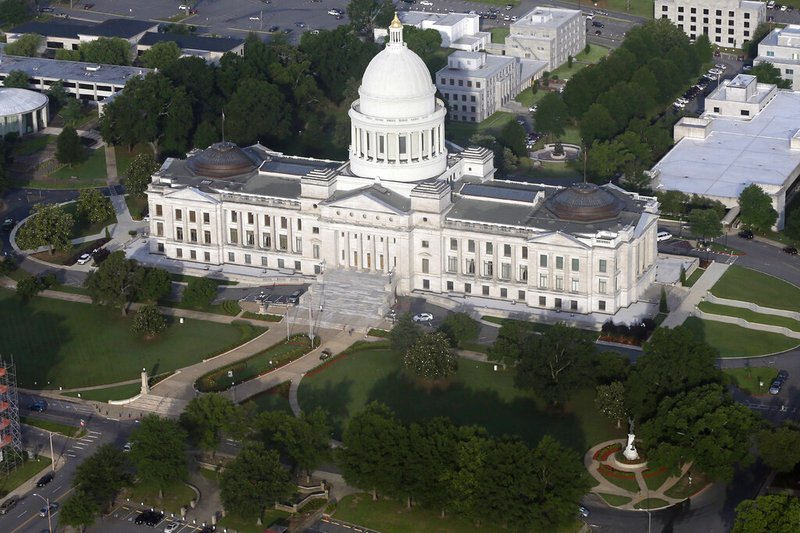Arkansas Democrats in the Legislature released a plan Thursday to raise Arkansas teacher salaries by $4,000 and raise the minimum teacher salary to $42,000, and urged Republican Gov. Asa Hutchinson to include their proposal in the upcoming special session on tax cuts and school safety grant funding.
But the governor said Thursday there is no plan to add the proposal to the special session.
"The House and Senate leadership has indicated that there is insufficient support among the members for a teacher pay increase in a special session," Hutchinson said. "For that reason, there is no plan to add it to the call."
Earlier this month, Hutchinson said he wouldn't put a teacher salary increase on the agenda for the special session because of the lack of support in the Republican-dominated Legislature for a teacher pay increase in the session.
The governor initially proposed raising teacher salaries to a minimum of $46,000 and implementing at least a $4,000 salary increase. Under Act 170 of 2019, the minimum teacher salary was $34,900 for the 2021-2022 school year and will increase to $36,000 in the 2022-2023 school year.
Hutchinson subsequently trimmed his proposal to increase the minimum teacher salary to $42,000 a year and to provide a $4,000 increase to every teacher for the 2022-2023 school year.
Several Republican legislative leaders have said they want to wait for the House and Senate education committees to complete their biennial education adequacy review this fall and consider raising teacher salaries in the 2023 regular session, which starts in January.
Senate Republican leader Scott Flippo of Mountain Home said Thursday evening the Republican Party does not plan to take up teacher raises during the special session.
Flippo said he understands teachers are frustrated because of what Hutchinson said previously about using surplus funds for raises.
"We have significant concerns about using surplus money on a longtime or permanent expense," Flippo said. "We believe if [Hutchinson] were in year one of his first term, he wouldn't think about doing this."
On Thursday, House and Senate Democrats proposed the Raising Arkansas' Investment in Schools and Education Act, which is similar to Hutchinson's trimmed-down proposal. They said they would use $600 million from the state's $1.6 billion state surplus to create a fund that would allow the raises to be indefinitely sustainable based on current projections.
"After raising teacher pay, we can use our remaining billion-dollar surplus for other essential needs like adequately paying our bus drivers, custodians and other classified and support staff," said Rep. Reginald Murdock, D-Marianna. "The RAISE Act is a big step toward improving education throughout our state, but it's just the beginning of what we need to do."
The act would replicate a fund that the Legislature used to increase minimum salaries by statute in 2019.
Democrats said in a release that under their proposed plan a Teacher Pay Sustainability Fund would be established to allow for an immediate and sustainable increase in teacher pay. House and Senate Democrats said the availability of other funding streams for teacher pay means the fund would be needed primarily in the short term.
Republicans on the Arkansas Legislative Council last week rescinded its approval last month of $500 million in spending authority for the state Department of Education to disburse funds under the federal American Rescue Plan's Elementary and Secondary Schools Emergency Relief Fund and then granted back $42 million of that spending authority. The council recommended school districts develop plans to use the federal funds to finance bonuses for teachers and staff.
The council recommended funds be used to give a $5,000 bonus to full-time teachers and a $2,500 bonus to full-time staff, which will be financed with Elementary and Secondary School Emergency Relief funds.
The decision would mean school districts will have to decide whether to use Elementary and Secondary School Emergency Relief funds for bonuses, but each proposed use of the federal funds must receive approval from the Legislative Council
Hutchinson said last week that he was disappointed by the legislative council's decision because he doesn't believe it is the best approach to helping teachers.
